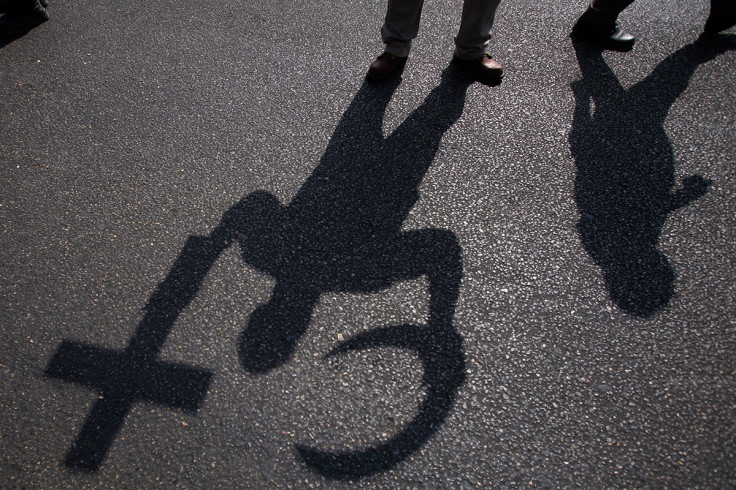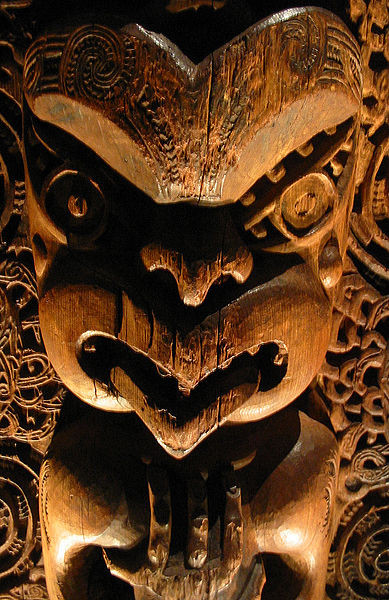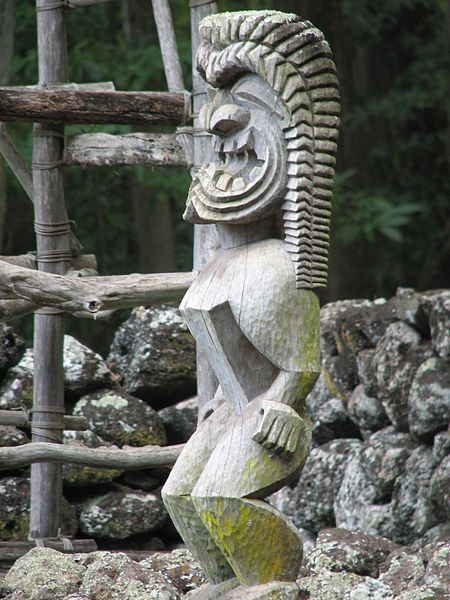Belief in supernatural punishment not 'big gods' gave rise to complex societies

The belief in supernatural punishment, rather than "big gods" of religions such as Christianity and Islam, gave rise to complex societies, researchers have found.
Christianity and Islam are the most successful religions in the world, accounting for more than 3.5 billion people across the globe. Characterised by big gods that punish their followers, it has previously been suggested they helped increase cooperation and drove the evolution of large complex societies.
However, this is not the case, scientists have said, noting these religions arose only recently and did not play a big part in the development of civilisations.
Published in the Proceedings of the Royal Society B, researchers from the University of Auckland looked at 96 Pacific cultures and computer models from evolutionary biology to see what caused society to evolve. Findings showed it was belief in broad supernatural punishment has facilitated the development, rather than belief in big gods.

The authors wrote: "Supernatural belief presents an explanatory challenge to evolutionary theorists— it is both costly and prevalent. One influential functional explanation claims that the imagined threat of supernatural punishment can suppress selfishness and enhance cooperation.
"Specifically, morally concerned supreme deities or 'moralising high gods' (MHG) have been argued to reduce free-riding in large social groups, enabling believers to build the kind of complex societies that define modern humanity."
The researchers tested the hypothesis that MHG are involved in society evolution, as well as an alternative, supernatural punishment hypothesis, that allows for a broader range of moralising agents.
Explaining the difference, study author Joseph Watts told IBTimes UK: "While it's easy to take the big gods of Christianity and Islam for granted, they arose and spread within the last few thousand years and are not typical of religions generally.
"Outside of Christianity and Islam, there are a wide range of different supernatural agents and processes, such as ancestral spirits, nature gods, and karmic forces. In Pacific cultures, the role of supernatural punishment was often filled by the spirits of deceased ancestors who would monitor and punish people's behaviour. Supernatural punishment was generally believed to occur in one's lifetime, rather than hell, taking the form of drought, sickness or famine."
Supernatural punishment and cultural exchanges
Findings from the study showed that broader supernatural punishment drives political complexity. In comparison, MHG follow political complexity. They suggest the concept of big gods arose from arising cultural exchanges between different societies.
Watts said: "Globally, the spread of big gods has occurred through the spread of Christianity and Islam. While it is certainly possible that these religions have spread due to their big gods increasing cooperation, they also have a range of other unique and interesting features that might explain their success, including the instructions to go forth and multiply, to actively convert others, and the threat of eternal punishment for heresy.

"As Christianity and Islam emerged after big societies, they cannot have played a role in early human societies."
Watts said further research is needed to establish the exact mechanisms through which supernatural punishment allows for the evolution of political complexity, but that one idea could be that the threat of punishment increases cooperation.
"Another is that ancestral spirits, which are a common form of supernatural punishment, can be used to make claims of political authority [eg those believed to be more closely related to an important ancestral spirit might use this to substantiate claims of authority]."
Previous research by the University of Auckland looked at the purpose of big gods and found they helped people living in harsh environments - suggesting they served a function in modern societies but were not a factor in their development.
The researchers said: "Our findings show that Pacific cultures were able to build large complex societies without the kind of big gods found in Christianity and Islam. Globally, the big moral gods of Christianity and Islam arose within the last few thousand years, well after humans developed large cooperative societies.
"One message we can take away from this is that humans are capable of building and sustaining large cooperative societies without big gods."
© Copyright IBTimes 2025. All rights reserved.






















